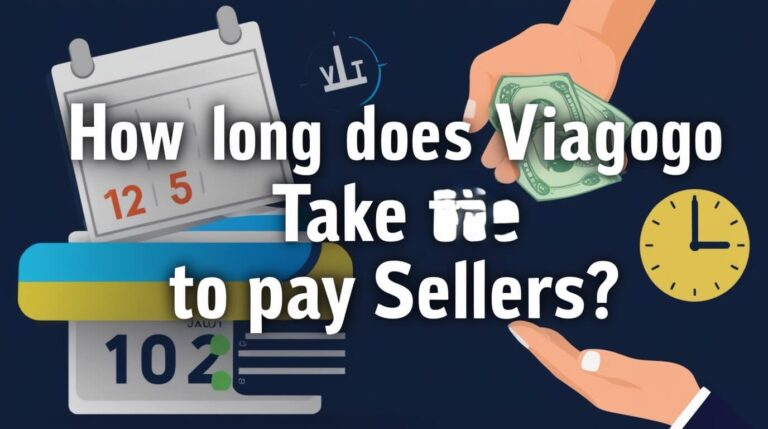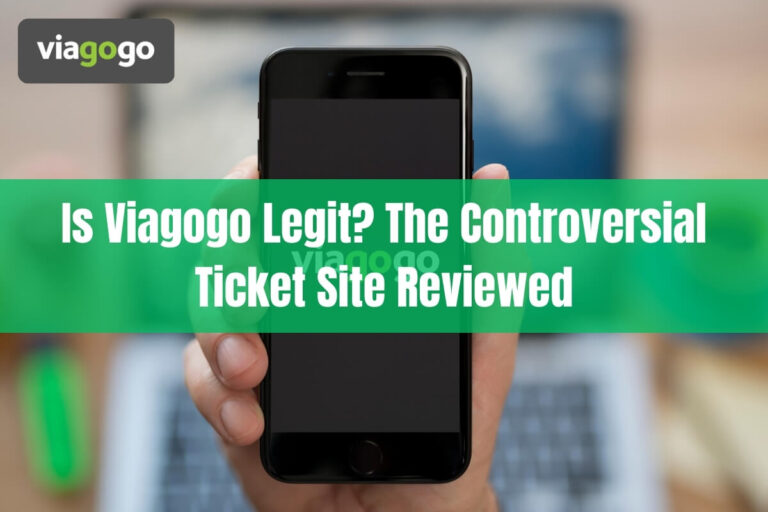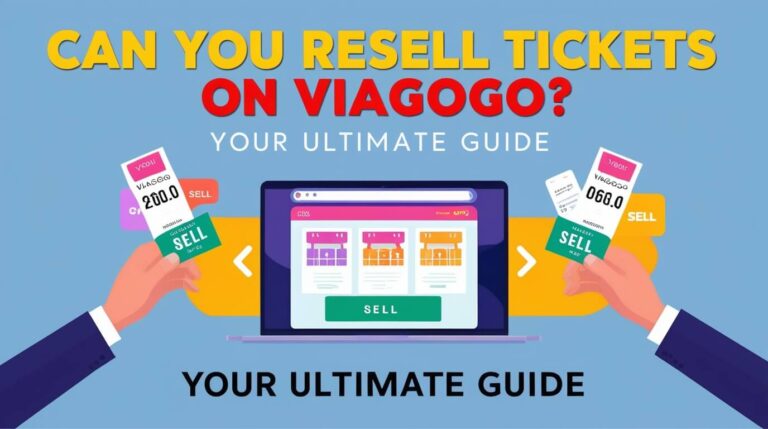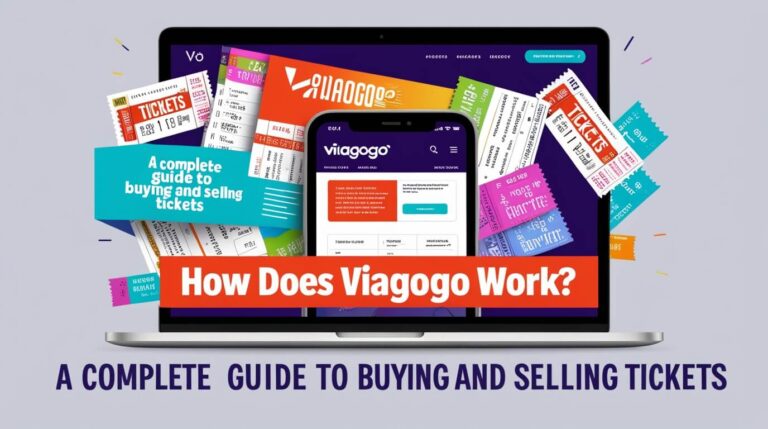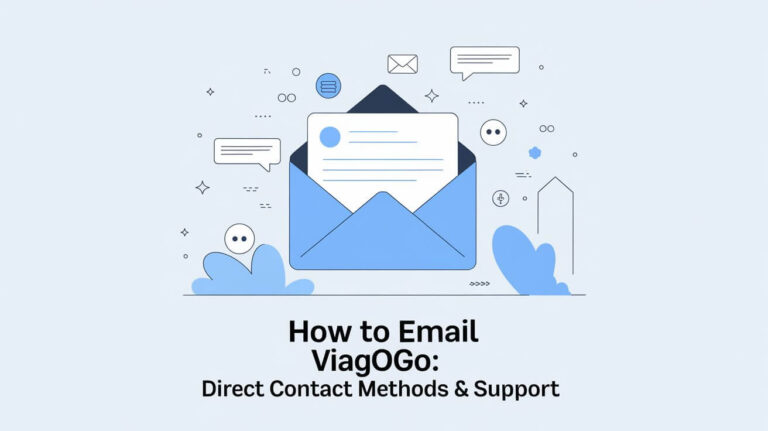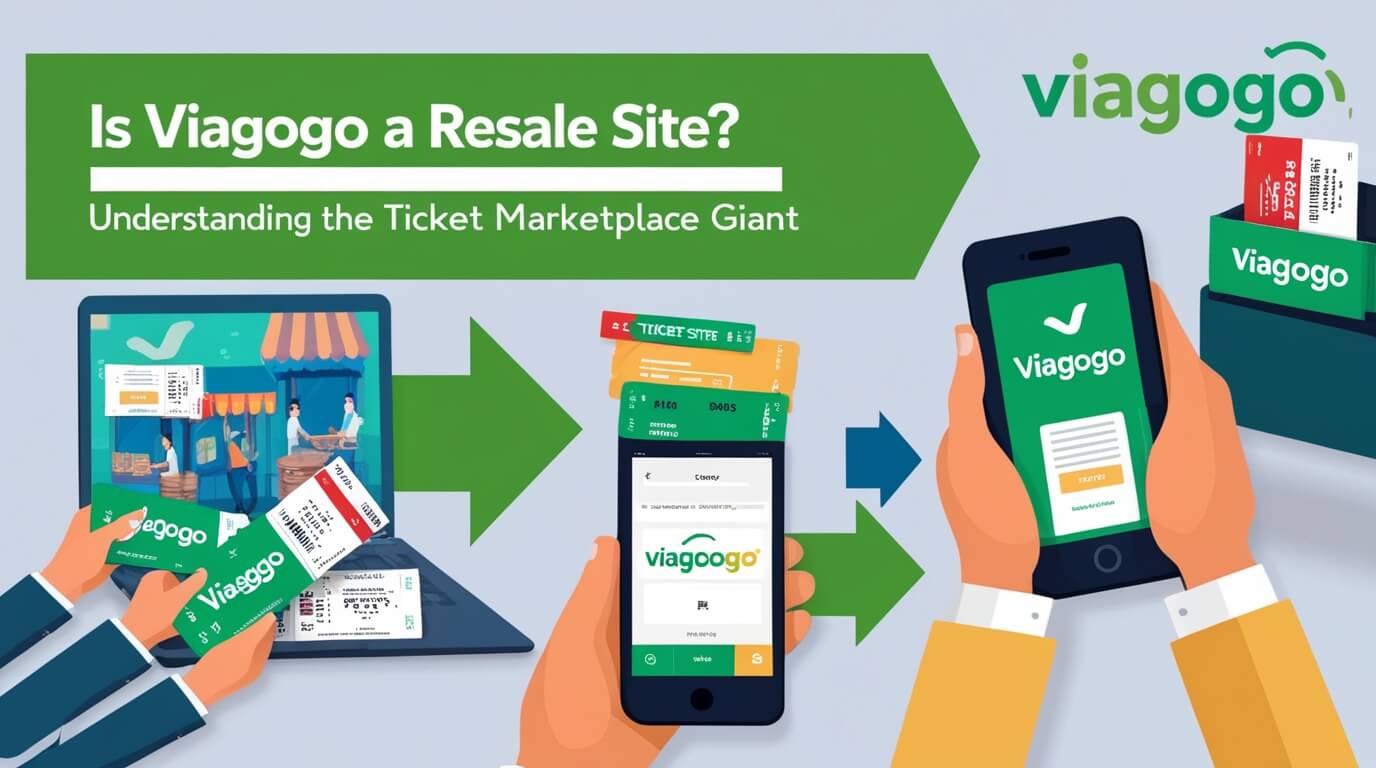
Viagogo is indeed a resale site for event tickets. This online platform allows people to buy and sell tickets for concerts, sports events, and other live performances. But there’s more to the story than just this simple answer. Let’s explore Viagogo’s role in the ticketing industry, its controversies, and what it means for fans and event organizers alike.
What is Viagogo?
Viagogo has become a household name for many event-goers. But what exactly is this company, and how did it start?
The Origins of Viagogo
Back in 2006, Eric Baker founded Viagogo in London. Baker, who had previously co-founded StubHub in the United States, saw an opportunity to shake up the European ticketing market. His vision? To create a platform where fans could easily buy and sell tickets to events they couldn’t attend.
Viagogo’s Business Model
At its core, Viagogo operates as a middleman. It connects people who want to sell their tickets with those looking to buy. This model differs from primary ticket sellers, who get their tickets directly from event organizers.
Viagogo makes money by charging fees to both buyers and sellers. These fees can sometimes be hefty, sparking debates about the platform’s pricing practices.
How Viagogo Operates as a Ticket Marketplace
When you visit Viagogo’s website, you’ll find tickets for all sorts of events. From rock concerts to football matches, the platform offers a wide range of options. But remember, Viagogo doesn’t own these tickets. They’re all listed by individual sellers or professional ticket resellers.
The Resale Nature of Viagogo
Now that we know what Viagogo is, let’s dive deeper into its nature as a resale site.
Defining Ticket Resale Platforms
Ticket resale platforms, also known as secondary ticket markets, allow people to resell tickets they’ve already bought. This can be helpful if you can’t make it to an event you’ve purchased tickets for. It also gives fans a chance to snag tickets to sold-out shows.
Viagogo falls squarely into this category. It’s not an official ticket seller, but a marketplace for reselling tickets.
Comparing Viagogo to Other Ticket Marketplaces
Viagogo isn’t alone in the ticket resale game. Other big players include StubHub (which Viagogo purchased in 2020), SeatGeek, and Ticketmaster’s resale platform.
Each site has its quirks, but they all serve the same basic purpose: connecting ticket sellers with buyers.
Primary vs. Secondary Ticket Markets: Where Does Viagogo Fit?
To understand Viagogo’s place in the ticketing world, it’s crucial to know the difference between primary and secondary markets.
Primary markets sell tickets directly from the event organizer. Think of buying tickets when they first go on sale through the venue’s website or official ticketing partner.
Secondary markets, like Viagogo, deal in resale tickets. These are tickets that have already been purchased once and are being resold.
Viagogo operates exclusively in the secondary market. This means every ticket on the site has been previously purchased by individuals or professional resellers.
The Controversy Surrounding Viagogo
Viagogo’s rise hasn’t been without bumps. The company has faced its fair share of criticism and legal challenges.
Legal Challenges Faced by Viagogo
Viagogo has tangled with regulators in several countries. In the UK, the Competition and Markets Authority (CMA) took action against the company in 2018. They alleged that Viagogo wasn’t being clear enough about additional fees and the risk of being turned away at events.
Australia’s consumer watchdog also went after Viagogo. In 2020, an Australian court fined the company millions for misleading consumers about ticket prices and scarcity.
Consumer Complaints and Concerns
Many users have voiced frustrations with Viagogo. Common complaints include:
- High fees that aren’t displayed upfront
- Difficulty getting refunds for canceled events
- Concerns about the authenticity of tickets
Some fans have reported being denied entry to events because their tickets were invalid or duplicated.
Viagogo’s Response to Criticism
To its credit, Viagogo has made efforts to address these issues. They’ve updated their website to make fees clearer and improved their refund policies. The company argues that it provides a valuable service by giving fans more options to attend events.
How Viagogo’s Resale Model Works
Understanding how Viagogo operates can help you decide whether to use the platform. Let’s break down the buying and selling process.
The Buying Process on Viagogo
When you buy tickets on Viagogo, you’re not purchasing from the company itself. Instead, you’re buying from individual sellers who have listed their tickets on the platform.
Here’s how it typically works:
- You search for an event on Viagogo’s website.
- You choose the tickets you want and proceed to checkout.
- Viagogo processes your payment and notifies the seller.
- The seller transfers the tickets to you, often electronically.
Viagogo acts as a guarantor in this process. They hold your payment until you receive valid tickets.
Selling Tickets Through Viagogo
If you have tickets you can’t use, you can list them on Viagogo. The process goes like this:
- You create a listing for your tickets, setting your price.
- When someone buys your tickets, Viagogo notifies you.
- You transfer the tickets to the buyer through Viagogo’s system.
- Once the buyer confirms receipt, Viagogo releases the payment to you.
Viagogo’s Fees and Pricing Structure
Viagogo’s fee structure has been a point of contention. They charge fees to both buyers and sellers, which can significantly increase the final price of tickets.
For buyers, fees typically include:
- A booking fee
- A delivery fee
- Sometimes, a processing fee
Sellers are usually charged a percentage of the ticket price as a commission.
These fees can add up, sometimes making tickets on Viagogo much more expensive than their face value.
The Impact of Viagogo on the Ticket Industry
Viagogo and other resale sites have changed the ticketing landscape. Let’s look at how this affects different stakeholders.
Effects on Artists and Event Organizers
Many artists and event organizers have mixed feelings about resale sites like Viagogo. On one hand, these platforms can help ensure events sell out. On the other, they often lead to inflated prices that don’t benefit the performers or venues.
Some artists, like Ed Sheeran, have taken strong stances against ticket resale. They argue that it prices out genuine fans and benefits scalpers.
Consumer Advantages and Disadvantages
For fans, resale sites like Viagogo offer both pros and cons.
Advantages:
- Access to sold-out events
- Ability to resell tickets if plans change
- Sometimes, last-minute deals on tickets
Disadvantages:
- Often higher prices than face value
- Risk of fraudulent tickets
- Less transparency about where tickets come from
Changes in the Ticketing Landscape
The rise of resale sites has forced the ticketing industry to evolve. Primary sellers have introduced their resale options. Some have also implemented anti-scalping measures, like personalized tickets.
Alternatives to Viagogo
While Viagogo is a major player in ticket resale, it’s not the only option out there.
Official Primary Ticket Sellers
Whenever possible, it’s best to buy directly from official sources. These include:
- The venue’s box office
- The event’s official website
- Authorized primary ticket sellers like Ticketmaster or AXS
These options often offer the best prices and guaranteed authenticity.
Other Secondary Market Platforms
If you can’t find tickets through official channels, other resale sites include:
- StubHub (now owned by Viagogo)
- SeatGeek
- Ticketmaster Resale
Each platform has its own policies and fee structures, so it’s worth comparing options.
Fan-to-Fan Exchange Services
Some artists and events offer their own fan exchanges. These platforms let ticket holders resell their tickets at face value to other fans. While less common, these can be a great option when available.
The Future of Viagogo and Ticket Resale
The ticket resale industry continues to evolve. Here’s what we might expect in the coming years.
Regulatory Changes and Their Potential Impact
Governments around the world are paying more attention to ticket resale. We might see stricter regulations on pricing, transparency, and anti-scalping measures.
For Viagogo, this could mean adapting their business model to comply with new laws.
Technological Advancements in Ticketing
New technologies like blockchain and NFTs could change how tickets are bought, sold, and transferred. These innovations might make it harder to resell tickets at inflated prices.
Predictions for the Secondary Ticket Market
The secondary ticket market is likely here to stay, but it may look different in the future. We might see:
- More integration between primary and secondary markets
- Better tools for verifying ticket authenticity
- Increased price caps on resale tickets
Making Informed Decisions: Buying and Selling on Viagogo
If you decide to use Viagogo, here are some tips to help you navigate the platform safely.
Tips for Safely Purchasing Tickets on Viagogo
- Check the total price, including all fees, before buying.
- Read the listing carefully for any restrictions on the tickets.
- Use a credit card for added protection against fraud.
- Be wary of deals that seem too good to be true.
Considerations for Selling Tickets Through Viagogo
- Set a fair price that accounts for Viagogo’s fees.
- Be honest about the tickets’ face value and any restrictions.
- Transfer tickets promptly once sold to maintain a good seller rating.
Understanding Viagogo’s Guarantees and Policies
Viagogo offers a buyer guarantee, promising to replace tickets or offer a refund if something goes wrong. However, it’s important to read the fine print and understand the conditions of this guarantee.
Conclusion: Viagogo’s Place in the Ticket Resale Ecosystem
Viagogo is a ticket resale site with both good and bad points. It can help you find tickets for sold-out events or sell tickets you can’t use. But it has also faced legal issues and complaints about high fees and fake tickets.
Before using Viagogo or any resale site:
- Check official ticket sellers first
- Compare prices on different websites
- Think about the risks of buying resold tickets
New laws and tech are changing how ticket resale works. Viagogo will need to keep up with these changes to stay successful.
In the end, it’s up to you where you buy tickets. Learn about your options to make the best choice for you.

